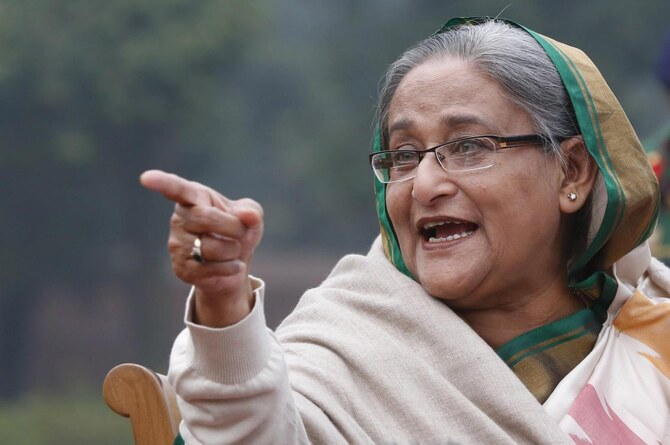DHAKA: A special tribunal in Dhaka issued an arrest warrant on Thursday for former Prime Minister Sheikh Hasina and began trial procedures in cases related to the killings of hundreds of people during recent student protests that forced her to step down and flee.
Initially peaceful student demonstrations started in Bangladesh in early July, triggered by the reinstatement of a quota system for the allocation of civil service positions.
Two weeks later, they were met with a violent crackdown by security forces, which according to UN estimates left more than 600 people dead. The deaths led to a nationwide uprising, which in early August forced Hasina to resign and leave for neighboring India, ending her 15 years in power.
The names of 46 people linked to the protest killings were in the arrest warrant issued by the International Crimes Tribunal, its chief prosecutor, Tajul Islam, told reporters in Dhaka.
Besides Hasina, he mentioned the names of her Awami League secretary general Obaidul Quader, former law minister Anisul Huq, former home minister Asaduzzaman Khan Kamal, and former foreign minister Hasan Mahmud.
The tribunal, he said, will hear 70 cases related to the July-August violence.
“Most of the main perpetrators are fugitives now, so we can’t disclose their names until they are arrested. But it’s confirmed that former Prime Minister Sheikh Hasina and those who were at the topmost level are accused in many of the cases,” Islam told Arab News.
“We are trying to complete the trial process of the most important crimes related to the prime accused as quickly as possible.”
Established in 2010 during Hasina’s rule, the International Crimes Tribunal is a domestic court responsible for investigating and prosecuting suspects of the 1971 genocide committed by the Pakistan Army and its local collaborators during the Bangladesh Liberation War. It also has jurisdiction over other war crimes and crimes against humanity.
“The crimes Hasina has been charged with will fall under the purview of crimes against humanity according to the ICT Act 1973, and that’s why these cases are being tried in the International Crimes Court instead of as simple murder cases in regular courts,” said Jyotirmoy Barua, advocate at the Supreme Court of Bangladesh.
“I think that is why the authorities considered that this is the best court to try her for the crimes that took place during the student-led protests ... If proven guilty, this court may award capital punishment to the accused.”


























